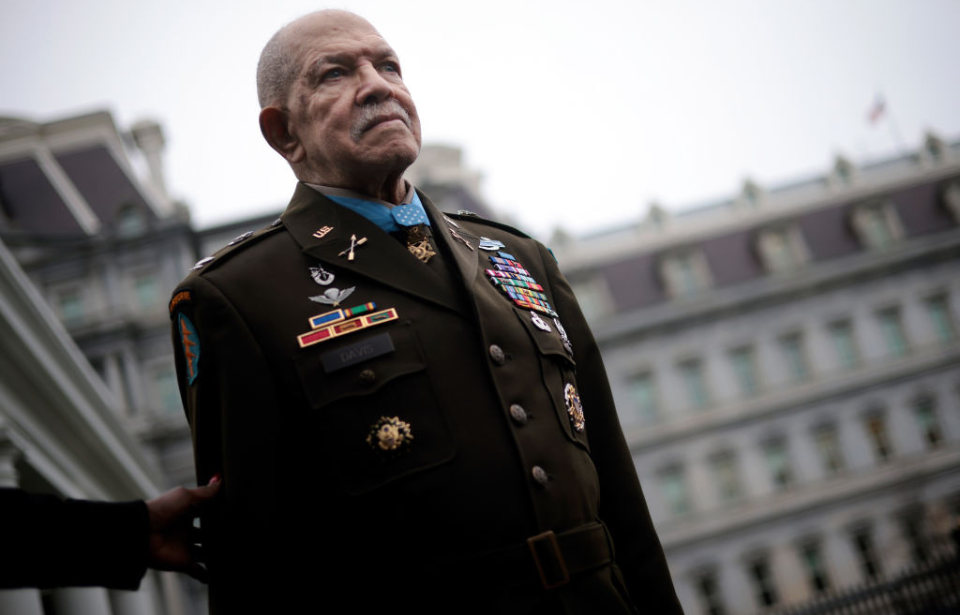Paris Davis’ entry into the US Army
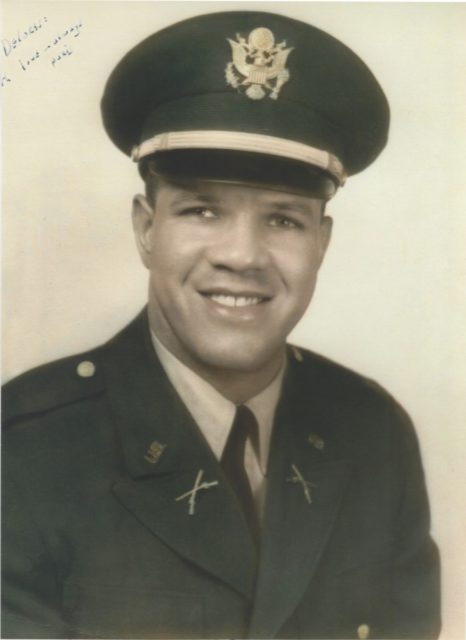
Paris Davis entered the world in Ohio on May 6, 1939. Growing up in a working-class household, with his father employed at a foundry, he developed a fascination with both military service and athletics early on. At Southern University in Louisiana, Davis pursued both passions—earning a degree in political science through an ROTC scholarship while making his mark on the football field as an All-American halfback.
By 1962, Davis had joined the U.S. Army. His sharp mind and physical skill set him apart, helping him rise rapidly and earn a place as one of the first Black officers in the Army’s Special Forces—a groundbreaking accomplishment in an era still weighed down by racial prejudice.
Serving as a captain in the 5th Special Forces Group, Davis understood the extra scrutiny he would face. His commanding officer warned him that his race meant he would need to prove himself even more than others. Davis accepted the challenge, establishing a strict culture of respect and discipline. He made it clear from the beginning that disrespect of any kind—including failing to call him “sir”—would not be tolerated.
Deployment to Vietnam
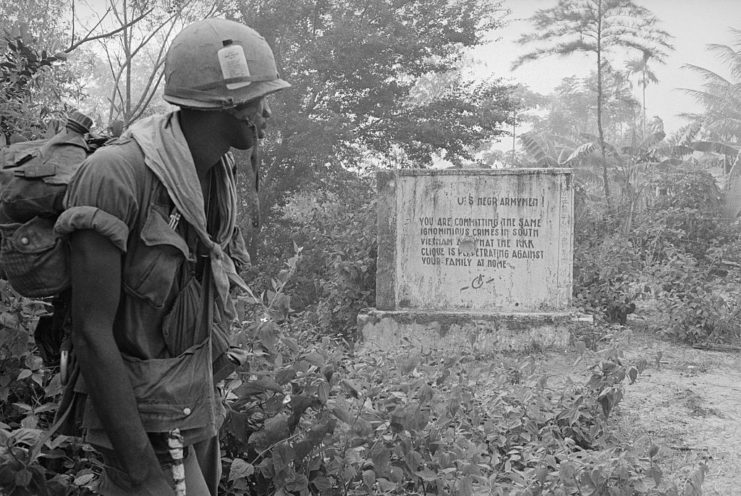
In early 1965, Paris Davis and his Special Forces team deployed to Vietnam, parachuting into a secluded farming region in Bình Định province—a key corridor for Viet Cong and North Vietnamese Army movements. Their mission centered on training local volunteers to resist enemy forces.
Davis’s courage was soon put to the test in May of that year when he rescued an aviation fuel truck driver. An aviation fuel truck in Bồng Sơn overturned and pinned its driver inside. Disregarding both the driver’s pleas and the imminent danger, Davis sprinted to the wreckage and hauled the man to safety. Moments later, the truck erupted in flames.
His heroic rescue did not go unnoticed; Davis was awarded the Soldier’s Medal in 1968 for his selfless actions that day.
Paris Davis didn’t want to leave any man behind
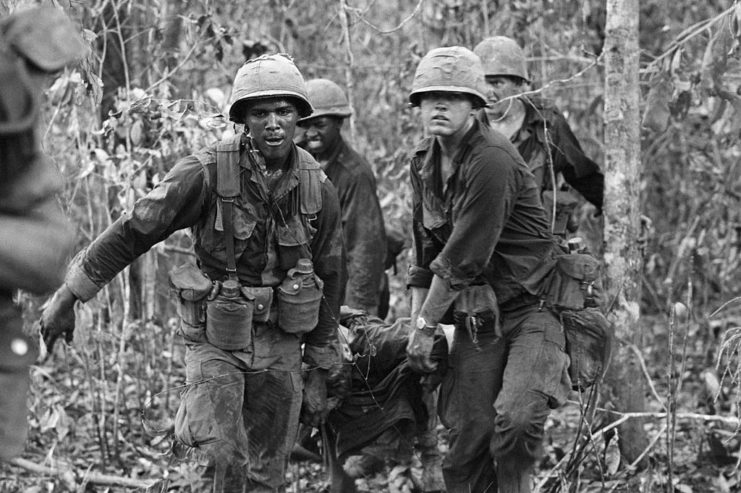
Paris Davis didn’t wait long to further distinguish himself in Vietnam, risking his life for his men during an enemy attack in June 1965. The day began early for him, the 12 servicemen with the 883rd Regional Forces Company and the accompanying 90 South Vietnamese volunteers. They’d been tasked with conducting a surprise raid on an NVA camp deep in the jungle.
Davis and Master Sgt. Billy Waugh stormed into the enemy commander’s hut and killed him at close range. At the same time, the other members of the group threw grenades and shot their rifles. The majority of the NVA troops were caught unawares and killed in their cots. Some, however, heard the commotion and escaped into the jungle.
Considering the raid a success, Davis and his men started making their way back to camp. That’s when they heard the sound of bugles, signaling an impending ambush by the NVA – and a rather large one, at that. The team was pushed into a rice paddy with no cover as sniper fire rained down on them. Three bullets struck Waugh, while another hit the medic in the head. A mortar blast also knocked out the group’s weapons specialist.
Frequently exposing himself to enemy fire, Davis rallied his unit and directed their own small arms fire throughout what became a 19-hour standoff. He himself suffered severe injuries to his leg and hand, with a grenade blast practically tearing off his trigger finger. Despite his injuries, he continued to evacuate his wounded comrades, even as air support arrived and dropped bombs over the area. Among those he rescued was Waugh.
A colonel watching the engagement from above ordered Davis to seek shelter, but he refused, as it meant leaving behind his men. He frequently shot his M16 rifle with his pinkie finger while sprinting to the injured and dragging them to safety. When relief arrived, he refused medical aid for himself until everyone had been evacuated. It’s widely believed his efforts ensured each member of his team made it out alive.
Recommended for the Medal of Honor
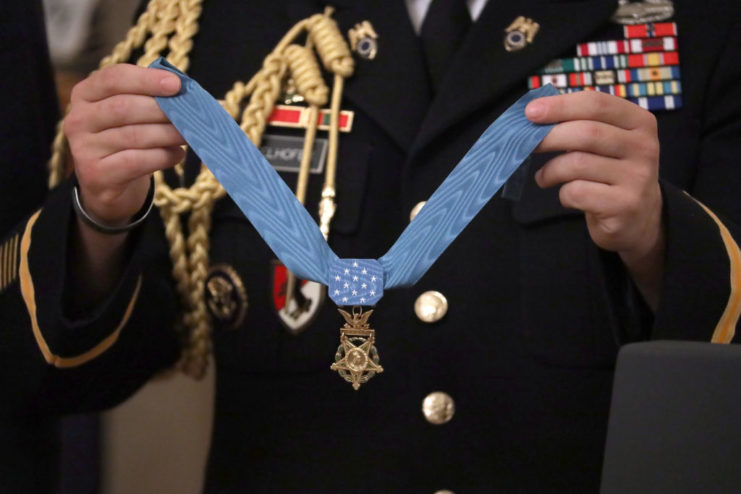
Paris Davis had already been decorated for his valor in Vietnam, receiving the Purple Heart and the Silver Star. Yet to his commander, Maj. Billy J. Cole, those awards didn’t adequately reflect the full measure of Davis’s bravery—especially his refusal to abandon wounded soldiers while under withering fire. Cole quickly nominated him for the Medal of Honor. When the Army failed to respond, he followed up, only to discover the paperwork had mysteriously disappeared. Refusing to give up, he submitted the recommendation a second time, but that too went missing.
As time went on, Davis’s comrades began to suspect something more troubling was at play. Many came to believe that Davis was skipped over for the recognition because of his race.
Davis himself pressed forward, undeterred. He rose through the ranks to command the 10th Special Forces Group before retiring as a colonel in 1985. Beyond the Army, he continued serving his community, establishing The Metro Herald, a Virginia-based newspaper dedicated to amplifying Black voices and chronicling milestones in the fight for civil rights.
Only decades later did the broader recognition begin to arrive. In 2019, Davis was inducted into the Ranger Hall of Fame—one of several belated honors acknowledging a career defined by bravery, leadership, and an unshakable commitment to justice.
Paris Davis is presented with the Medal of Honor
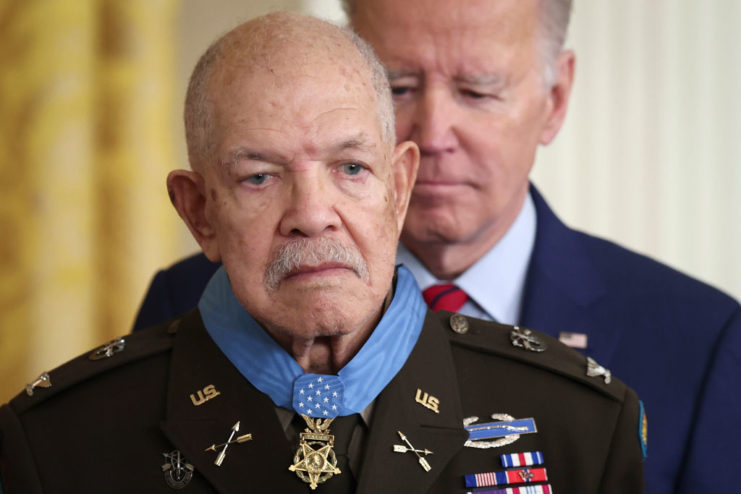
Nearly two years later, it was announced that then-Acting Defense Secretary Christopher Miller had ordered a fast-tracked review of the long-overlooked Medal of Honor nomination for the Green Beret. Although a March 2021 deadline was set, little progress was publicly reported. That changed in November 2022, when a Pentagon official confirmed to Military.com that the nomination had been endorsed by Gen. Mark Milley, chairman of the Joint Chiefs of Staff.
From there, the nomination advanced to Defense Secretary Lloyd Austin, who approved it and forwarded it to President Joe Biden for final consideration.
On March 3, 2023—almost six decades after Davis’s acts of valor in Vietnam—he was formally awarded the Medal of Honor during a White House ceremony. In his remarks, President Biden praised Davis as a “true hero,” describing him as the embodiment of the medal’s values: “brave and big-hearted, determined and devoted, selfless and steadfast — America.”
